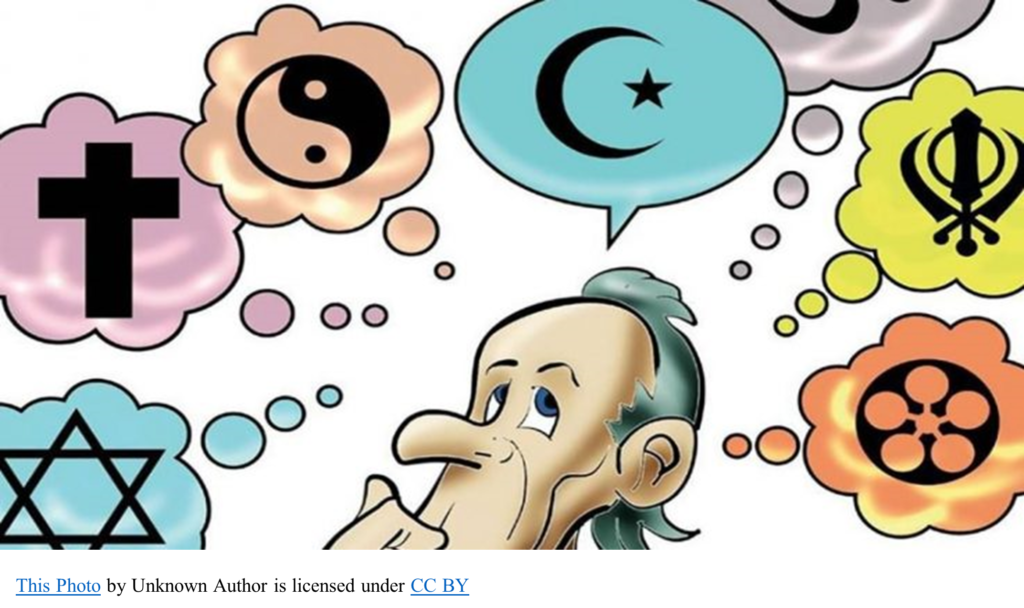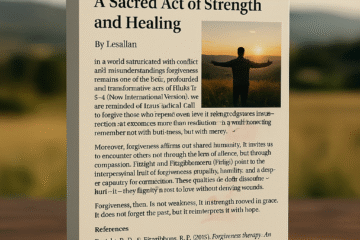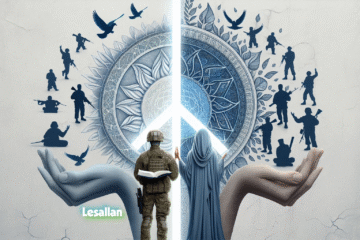Lesallan – July 2nd, 2023

Have you ever wondered why there are so many different denominations, sects, and groups within Christianity? Why do some Christians believe in infant baptism while others do not? Why do some Christians celebrate Christmas while others do not? Why do some Christians speak in tongues while others do not?
The answer is not simple, but it has to do with how people interpret the Bible, the history of Christianity, and the cultural and personal factors that shape one’s faith. Let us look at some of these factors and how they affect people’s definitions of Christianity.
The Bible is the primary source of authority for Christians, but it is not always clear or easy to understand. Different translations, interpretations, and Bible reading methods can lead to different conclusions about what it teaches. For example, some Christians read the Bible literally, meaning they take every Word at face value and believe it is historically and scientifically accurate. Others read the Bible metaphorically, meaning they look for the deeper meaning and symbolism behind the words and stories. Still, others read the Bible contextually, meaning they consider the historical and cultural background of the authors and audiences of the Bible and how that influences their message.
The history of Christianity is also a factor that influences people’s definitions of Christianity. Christianity began as a Jewish sect in the first century AD but soon spread to different regions and cultures. As Christianity encountered challenges, conflicts, and opportunities, it developed into various branches and traditions. For example, in the fourth century AD, Christianity became the Roman Empire’s official religion, giving it political power and influence but also leading to corruption and persecution. In the 11th century AD, Christianity split into two major branches: the Roman Catholic Church and the Eastern Orthodox Church, due to disagreements over doctrine, authority, and practices. In the 16th century AD, Christianity experienced another major division: the Protestant Reformation, which was sparked by Martin Luther’s protest against the abuses and errors of the Catholic Church. The Reformation led to the emergence of many Protestant denominations, such as Lutherans, Anglicans, Calvinists, Anabaptists, and more.
The cultural and personal factors that shape one’s faith are also important to consider when considering people’s definitions of Christianity. Culture refers to the social norms, values, beliefs, and customs that influence one’s worldview and behavior. Culture can affect how one understands and expresses their faith in different ways. For example, some cultures emphasize ritual and tradition, while others emphasize personal experience and emotion. Some cultures value hierarchy and authority, while others value equality and freedom. Some cultures are more conservative and stricter, while others are more liberal and flexible. Personal factors refer to individual characteristics, experiences, preferences, and choices that affect one’s faith. Personal factors include personality, education, family background, life events, relationships, interests, hobbies, passions, and goals. Personal factors can affect how one relates to God, others, and oneself differently. For example, some people are more rational and analytical in their faith, while others are more intuitive and creative. Some people are more outgoing and social in their faith, while others are more “introverted and private.” Some people are more adventurous and open-minded in their faith, while others are more cautious and traditional.
As you can see, many factors contribute to people’s definitions of Christianity. This means there is no right or wrong way to be a Christian. However, this does not mean that anything goes or that all beliefs are equally valid. Christians still need to base their faith on the core teachings of Jesus Christ and his apostles, as revealed in the Bible. Christians still need to seek unity and love with other Christians who may have different opinions or practices. Christians must still respect and learn from other cultures and traditions that may enrich their faith. Christians still need to examine their motives and actions and strive to grow in their relationship with God.
Ultimately, people’s definitions of Christianity differ because God made us different. He created us with diversity and variety to reflect his nature and glory. He gave us free will to choose how we respond to his grace and truth. He invites us to join him in his mission of transforming the world with his love.
If you are curious about Christianity and want to learn more about it, you may be wondering where to start and what to do. There are many ways to explore and deepen your understanding of Christianity, but some suggestions may help you.
One way to learn more about Christianity is to read the Bible, the primary source of authority for Christians. The Bible is a collection of books that tell the story of God’s relationship with humanity and his plan of salvation through Jesus Christ. The Bible is divided into two main parts: the Old Testament, which covers the history and prophecy of God’s people before Jesus, and the New Testament, which covers the life and teachings of Jesus and his followers. The Bible is not always clear or easy to understand, so you may need some guidance and tools to help you read it. You can use an easy-to-read and accurate Bible translation, such as the New International Version (NIV) or the English Standard Version (ESV). You can use a Bible app or website with audio, notes, cross-references, and commentaries. You can use a Bible reading plan that helps you follow a schedule and covers different parts of the Bible. You can also join a Bible study group or class that helps you discuss and apply what you read.
Another way to learn more about Christianity is to attend a church, a community of Christians who gather to worship God and support each other. A church is not just a building or an organization but a family of believers who share a common faith and mission. A church can help you learn more about Christianity by providing opportunities such as worship services, sermons, sacraments, prayer meetings, fellowship groups, classes, ministries, and more. A church can also help you grow in your faith by providing support, accountability, mentorship, friendship, and service. However, not all churches are the same or suitable for everyone. You may need to research and visit different churches to find one that matches your beliefs, needs, and preferences.
A third way to learn more about Christianity is to talk to other Christians who have experienced God’s grace and truth in their lives and can share their stories and insights with you. Other Christians can help you learn more about Christianity by answering your questions, explaining their beliefs, sharing their testimonies, giving you advice, praying for you, inviting you to join them in their activities, and more. Other Christians can inspire you to follow Jesus by showing you how they live out their faith differently. You can find other Christians in various places, such as your family, friends, school, work, neighborhood, online platforms, and more.
As you can see, many ways exist to learn more about Christianity. However, learning more about Christianity is not just an intellectual exercise or a hobby. It is a personal journey that involves your heart, mind, soul, and strength. It is a relationship with God that transforms your life with his love. Therefore, as you learn more about Christianity, do not forget to ask God for his guidance and presence. He is the one who reveals Himself to us through his Word (the Bible), his Son (Jesus Christ), his Spirit (the Holy Spirit), his people (the church), and his creation (the world). He is the one who invites us to know him personally and intimately. He is the one who loves us unconditionally and eternally.
~Lesallan – July 2nd, 2023


